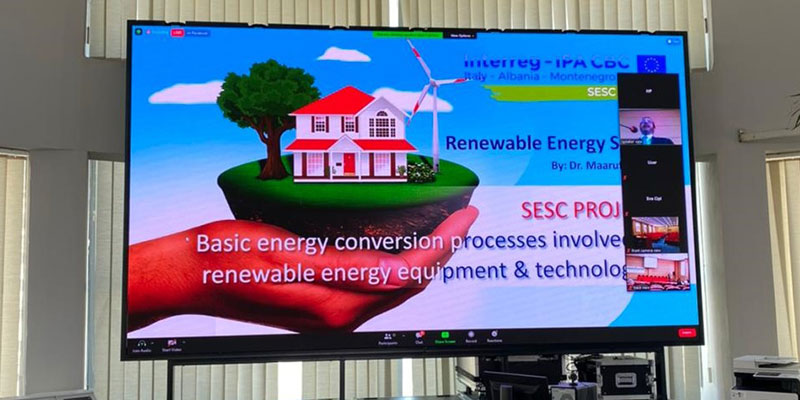
According to the specific activities under T1 Implementation WP, the University "Ismail Qemali" Vlore, Lead Partner of the project SESC - Smart Energy Community for Smart City, has organized the first workshop in Vlore, Albania in 26 February 2021.
The activity started with preparation works involving staff and expert engagement to prepare the workshop promotional materials and training presentations of lectors in the first training workshop titled "Establishing smart energy knowledge and community culture”. In the focus of expert’s proposals were interesting thematic of training like Smart energy systems as a cost-effective, sustainable and secure energy system with integration of renewable energy production, infrastructures and consumption and the coordination through energy services, active users and enabling technologies. Practical cases have been explained by the expert in order to show and to train a Smart Energy community as an appropriate starting point to articulate the bottom-up energy system transition with the capacity to weave the appropriate stakeholder interactions with the energy infrastructure. Regarding the Renewable energy management, the expert explained fundamental concepts of renewable energy marketing in an easy to understand and comprehensive way.
The workshop sessions continued with the introduction to Renewable energy sources-basic energy conversion processes involved in various renewable energy equipment and various technologies, also Smart energy product market and implementation experiences. The session on renewable energy - Law and Environment has been focused on law & policies on energy, followed by some notes on Bioenergies evaluating smart energy impact with main advantages in pollution management. At the end the participants discussed on future view of smart and renewable energy emphasized their needs for a smart energy community network and new competencies training. The participant list included more than 55 academic staff and students, HEIS and high schools students, NGOs, local and regional authorities, businesses.




